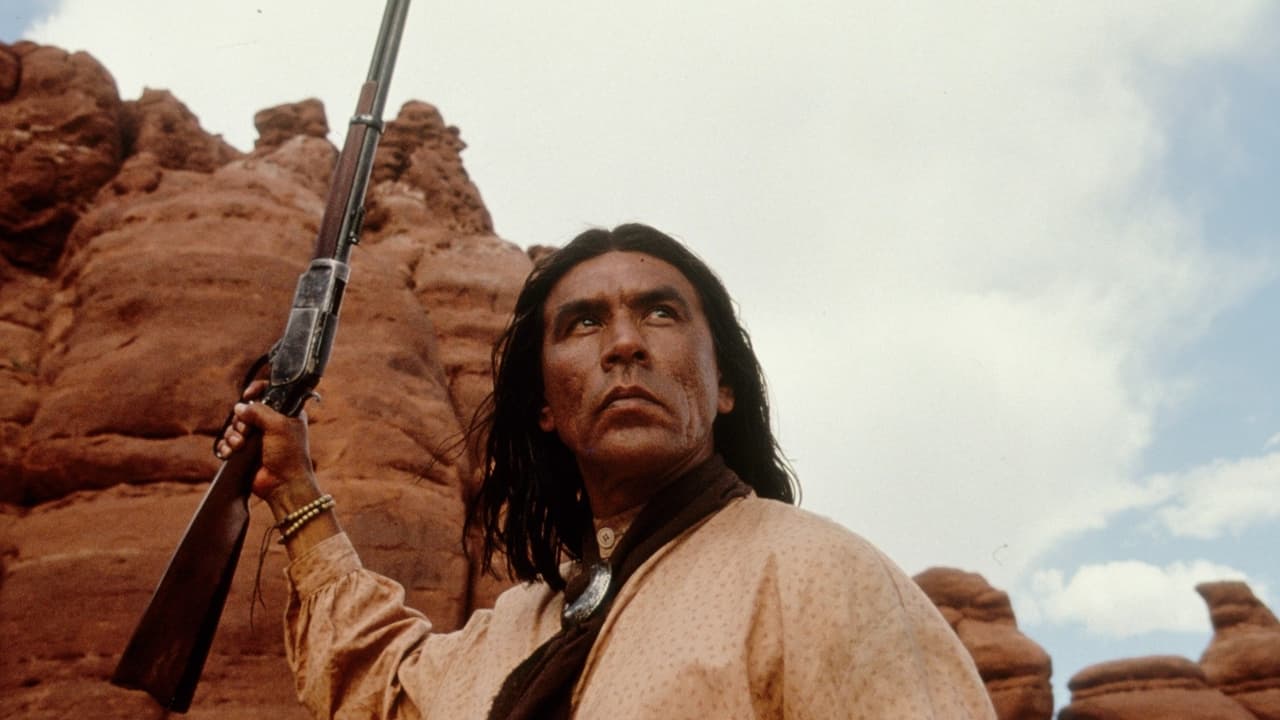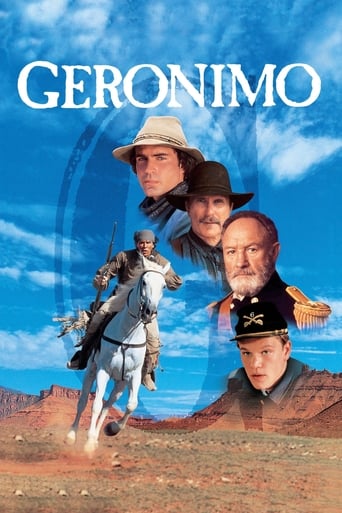

Truly Dreadful Film
... View MoreAbsolutely the worst movie.
... View MoreI think this is a new genre that they're all sort of working their way through it and haven't got all the kinks worked out yet but it's a genre that works for me.
... View MoreThis movie tries so hard to be funny, yet it falls flat every time. Just another example of recycled ideas repackaged with women in an attempt to appeal to a certain audience.
... View MoreThis movie is enthralling. I have always enjoyed well-done narration during a movie and this narration done by Gatewood, was excellent. It was not filled with emotion and yet the emotion was there without being evident.His voice is powerful and he reads extremely well. He also acts extremely well. The entire cast is equal to Hackman and THAT is an accomplishment. I remember when I became addicted to his breakthrough movie Bonnie and Clyde. I loved the movie and I had NEVER seen acting like Hackman's. Though I loved what he did I also did not want him to walk away with the movie. HE didn't Warren Beaty and Faye did not let this happen nor did the man who played "CW" In Real life there was a character that went by his initials and the betrayal actually did take place I do not know why they changed the initials of the man whose father betrayed Bonnie and Clyde.I did not mean to get off track and that movie is my favorite of all time.The legend of Geronimo is absolutely in the top five movies of my life. It is so well done that you can HEAR the crack and moaning of the saddles and they are mounted and the arrows hit home. The acting is superb by all who played in this movie-- it seemed like a docu. but it was not.IF you fail to watch this movie- you have missed out.The saddest part is that Geronimo lives another 20 + years and dies of pnemonia from lying in a ditch about a mile from the bar where he got drunk. He just died on the side of the road. A man who sent a chill into each whiteman's heart and a rush into every warriors heart- died in a drainage ditch. They may have brought his dying body to the hospital and I believe he made piece and spiritually died in that ditch. Fitting for what happened to the Natives of this land called America.I find it absurd that the settlers who came here from Europe were called Americans and the indigenous people who had been here long long before are called INdians--because of the stupidity of the settlers who seized what they wanted and called THEMSELVES Americans and called the spiritual people who did not suffer from much disease until the arrival of the Europeans-- Indians. The Indians were the Americans. The people who slaughtered their food supply and simply out-numbered and used superior technology to displace them were European invaders and should have been called such. Geronimo would have been a great man to share a few drinks. Just to meet him would have been an experience of a life time. He was NOT a savage--not more than WE would be if some superior force began to creep across our great country that we stole from the Americans.Warren E. Justice
... View MoreI found this historical flick about the relationship between the Apache chief Geronimo (1829 - 1907) pretty interesting. I was mainly impressed by two things: the picturesque landscape that falls just short of "epic", and what I took to be reasonable or at least a convincing facsimile of historical accuracy.It isn't really a traditional Western in the sense of good guys and bad guys. Nor is it patronizing towards the Indians, as "Fort Apache" was. Like life, the universe is more complex than that, and more confusing. For the most part, General Crook (Gene Hackman) tries to compromise. His successor,General Miles (Kevin Tighe, good actor, perennial bad man), is a lying bastard.It's no wonder Geronimo (Wes Studi) is torn between trying to raise corn within the strictures of reservation life and taking off for the hills with a band of resentful warriors and their families. The Apache were pretty rough on captives too. They were artists of torture and the film doesn't shy away from it, although it doesn't get into the arrangements in any detail.Geronimo and his group wind up as prisoners of war in various place, beginning in Florida and ending at Fort Sill, Oklahoma. He was a POW for the rest of his life, but also a celebrity. He appeared at fairs, rode in Teddy Roosevelt's inaugural parade and so forth. The movie gives the impression that he spent the rest of his life behind bars.That's misleading but not entirely false. Other incidents, I would guess, are fabricated -- an encounter between a few soldiers and some bounty hunters in which the famous scout Al Sieber (Robert Duvall) is killed. He actually died when a boulder fell on him at a construction site. The honorable Lieutenant Gatewood (Jason Patric) was a real figure who admired the Apache and spoke their language but was betrayed by the Army.For what it's worth, if the US Army treated the Apache poorly, the Mexican Army did even worse.
... View MoreIf you like Westerns, 1993's "Geronimo: An American Legend" is worth checking out; it's just not as good as you would expect from such an exemplary cast & crew.With the likes of Walter Hill, John Milius, Gene Hackman, Robert Duvall, Jason Patric, Wes Studi and Matt Damon you'd expect greatness on the level of "Last of the Mohicans," "Dances with Wolves" or even "Wyatt Earp," instead it's merely watchable.This is likely because, more than anything else, it comes across as a humdrum history lesson. At the same time, it's not bad. So, if you're a fan of Westerns, I encourage you to add it too your collection. Just don't expect anything outstanding.The film runs 115 minutes and was shot mostly in Southern Utah, but also Old Tucson, Arizona.GRADE: C+
... View More"I don't feel we did wrong in taking this great country away from them. There were great numbers of people who needed new land, and the Indians were selfishly trying to keep it for themselves." – John Wayne (interview) "Two thousand years of history, could not be wiped away so easily." – Bob Marley "The Indians must conform to "the white man's ways," peaceably if they will, forcibly if they must. They must adjust themselves to their environment, and conform their mode of living substantially to our civilization. This civilization may not be the best possible, but it is the best the Indians can get. They cannot escape it, and must either conform to it or be crushed by it. The tribal relations should be broken up, socialism destroyed, and the family and the autonomy of the individual substituted." - Commissioner Thomas MorganAfter demonizing Native American Indians for several decades, Hollywood suddenly began releasing a slew of revisionist westerns in the late 60s and early 70s. Enter films like "Buffalo Bill", "Ulzana's Raid", "A Man Called Horse" and "Soldier Blue", all of which forced their audiences to empathise with subjugated natives whilst portraying the "white man" as genocidal brutes bent on conquest. Even John Ford, one-time king of racist caricatures, tried to make amends with "Cheyenne Autumn", his apology for past pictures.Meanwhile, on the other side of the Atlantic, French, Italian and British film-makers were treading similar ground. With the dismantling of the British Empire, British directors began releasing a spread of anti Colonial war films, whilst European directors like Gavras, Wertmuller and Pontecorvo protested the treatment of Algerians and the aggressions of the French Empire.With the battle for history won, films in the early 90s then began to treat this subject in a much more elegiac fashion. Films like "Dances With Wolves", "Thunderheart, "Squanto", "Geronimo" and "The Last of the Mohicans" serve up romantic myths, treating Native Americans with a mixture of reverence, nostalgia and melancholy.Released at the end of this wave, Walter Hill's "Geronimo" focuses on the "Geronimo Campaign", a period of history between 1885 and 1886 in which five thousand US cavalry men attempted to hunt and kill a group of Apache Indians. As is typical of these films, the US Cavalry is portrayed as an aggressive invader whilst the Indians are treated as a band of unfairly persecuted freedom fighters. With the Apaches placed in reservations (ie, concentration camps), caged in trains like Holocaust victims and betrayed by fellow Indians seduced by the false promises of white men, the film is implicitly critical of a certain brand of Colonialism.It's all familiar stuff, very superficially drawn, but the film nevertheless differentiates itself from revisionist westerns in several ways. It revokes the cliché of having an enlightened white man shedding his white ways and fighting for the red skins, and instead adopts a tone of total futility. Here, the battle is already lost, the natives already defeated, and our white hero has long resigned to the horrors of his own actions. Thus, rather than having a white man joining forces with the natives and taking up arms with them against the invaders - your typical "Avatar" narrative - we have a white man attempting to reason with natives such that they accept their own loss. Such that they come to terms with their defeat and stop wasting the lives of their few remaining tribesmen in a futile fight against a technologically and numerically superior foe. Because of this stance, the film plays less like a drama or action fantasy, than a kind of detached tragedy. The weight of a hundred years of history has already determined the outcome of the film, the typical Hollywood fantasies (the flights of fancy where audiences woop with joy as the Indians rebel) rejected entirely. The battle is over. Victory is impossible. History is defeat. This may make for less satisfying viewing, but it gets under your skin.Another bold choice is the resignation of the white officer at the end of the film. Whilst most films in this genre actualise the white man's rage by having him join forces with the enemy and fight against his homeland, the truth is, "doing nothing" is often a much braver act. Violence is not necessarily action. Social structures are run by action, and, contrary to popular opinion, it is violence that makes sure things stay the way they are. Sometimes the truly violent act is to do nothing, a radical refusal often undermining the status quo. Sometimes the only authentic stance to take in dark times is to do nothing, to refuse all commitment (see Renoir's "The Devil Probably"). 7.9/10 - Though directed by Walter Hill, screenwriter John Milius is the real auteur of this picture. Milius' lug-headed politics and passions ooze from every scene, whilst director Walter Hill is simply content to use the tale as an excuse to indulge in his love for his mentors, Peckinpah and Siegel. The film is perhaps better than "Dances With Wolves", but loses points for some middlebrow sermonising. And though critical of US Calvary men and policy makers, the film is nevertheless heavily whitewashed, too fearful to deal with some of the darker truths which occurred during the era. See "Europa Europa".
... View More